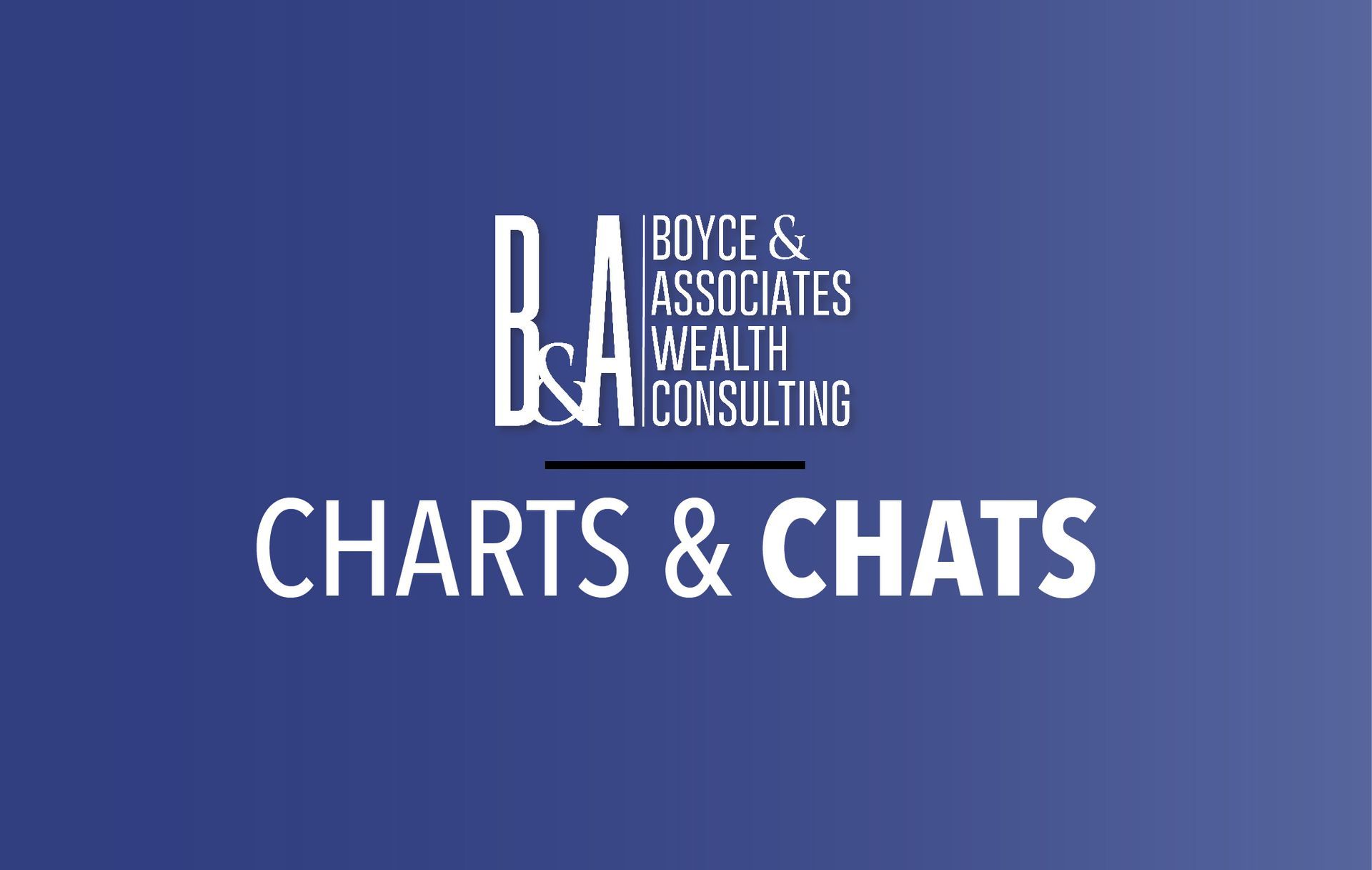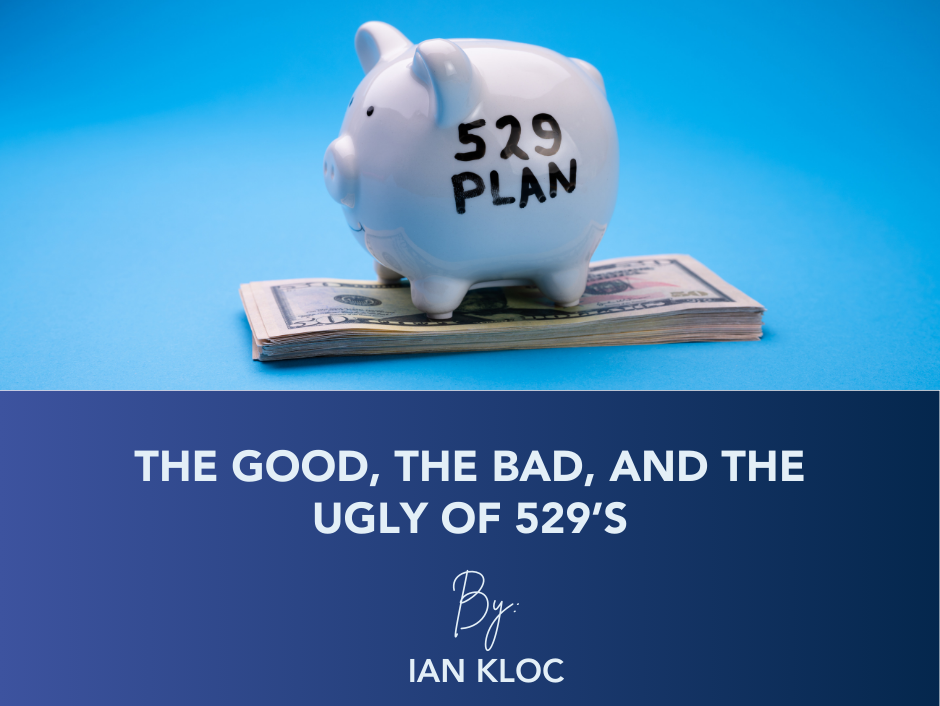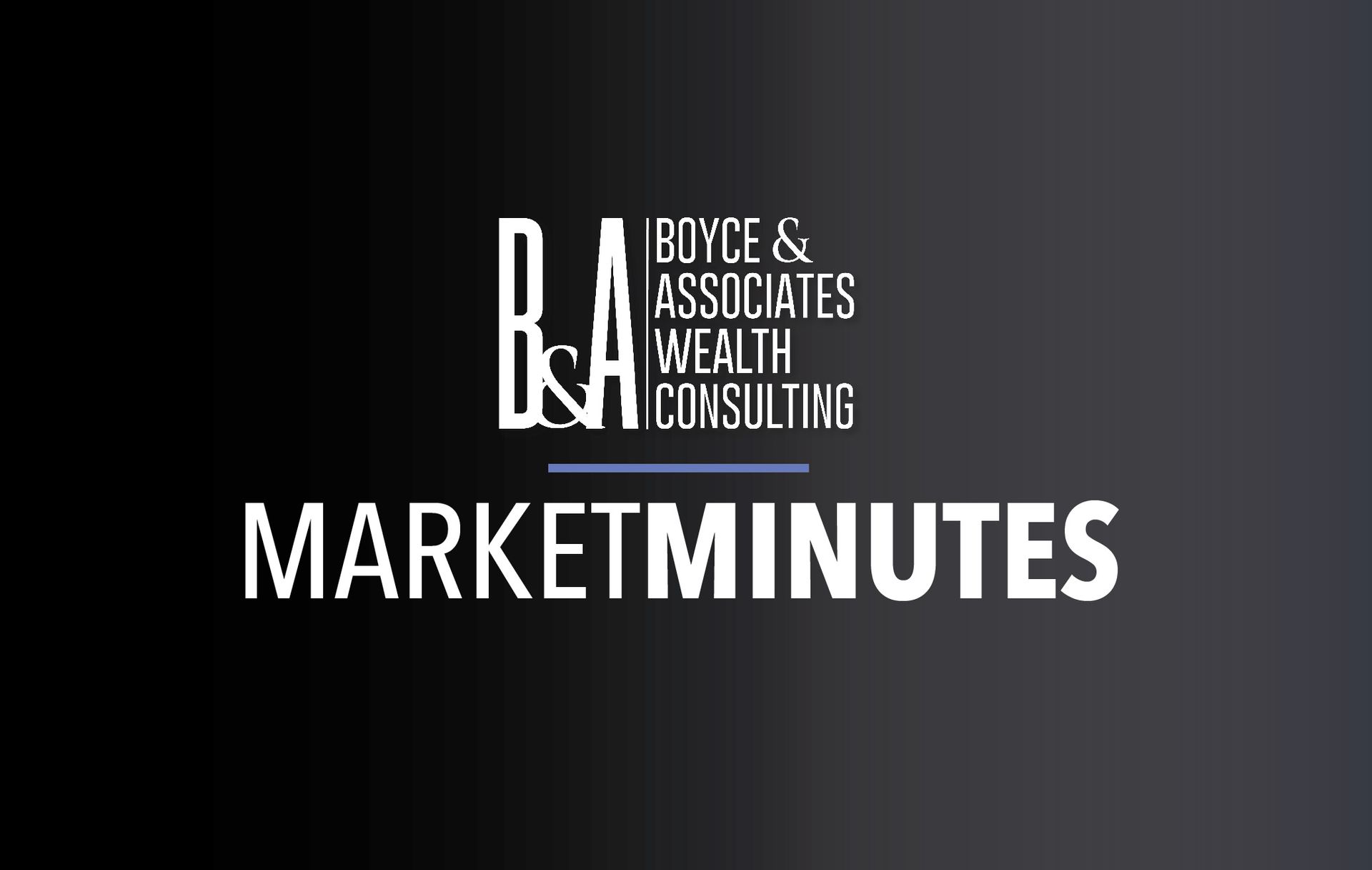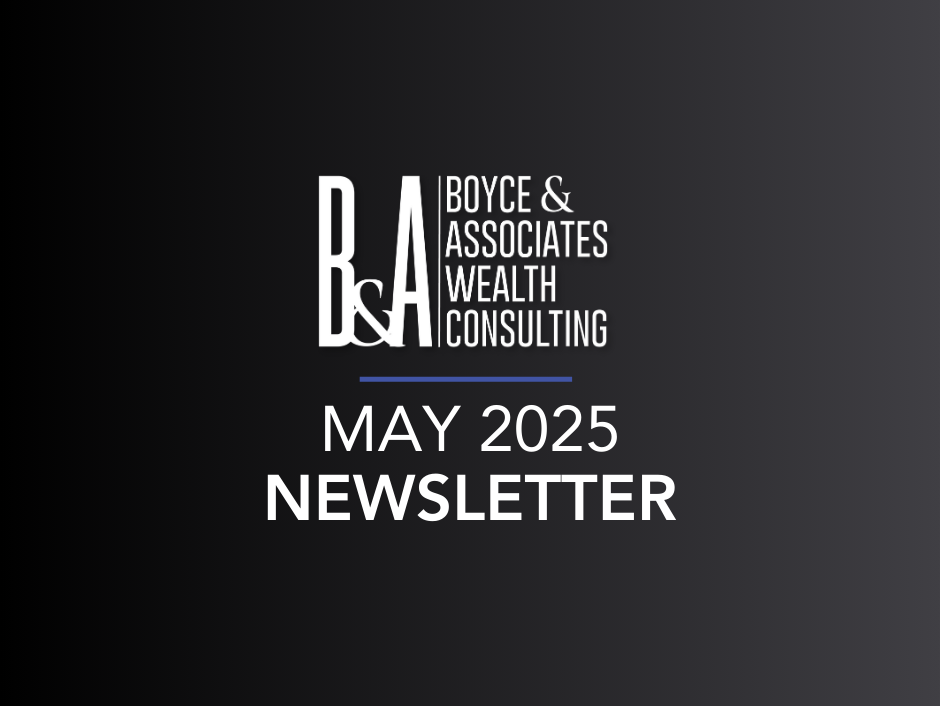4th Quarter Perspective | OCTOBER 2023
Greetings to our extended Boyce & Associates Family and Friends,
We’ve had a busy summer following our company rebranding and celebration, with most of our staff taking some time to be with their families, trying to beat the heat, and get ready for the fall and new year. As we look forward to the fall, cooler weather, football, and hopefully a little rain, we take stock of the ever fluid environment within the investment markets.
Our team has been staying on top of recent developments that matter for portfolios heading into the 4th quarter of 2023. The investment markets have certainly acted better thus far in 2023 than last year; however, the crosscurrents remain somewhat mixed. We know that inflation is in retreat, albeit slowly, and the Federal Reserve has indicated that it is close to the end of its interest rate increases. Although energy prices have clearly increased as of late, core inflation expectations are well anchored over the next 2-3 years, and we are confident that prices will continue to drop. In fact, if you exclude food and energy and certain measures of housing costs, we have made fairly measurable progress in lowering inflation. But getting to the ultimate inflation target will take time and patience, as there is still some heavy lifting ahead of us.
Investment markets are still trying to assess the path ahead and the final outcome of these changes, however, which will likely lead to some near-term uncertainty being priced into asset prices. During the coming months, we will need to contend with the risk of a government shutdown, labor strikes within the automotive sector, perhaps some additional stress within the regional banking sector, as well as the impact of student loan repayment on retail sales and consumption.
The housing market is reflecting the impact of higher mortgage rates and declining affordability, and the commercial property sector (especially the office market) continues to adjust to the post-pandemic environment. International markets also have some uncertainty. While Germany is close to a recession, we may see potential improvement in near term Chinese economic conditions following a sluggish period of slow growth. Regardless, leadership in these markets remains mixed for the time being, despite attractive valuations, and the strong US dollar strength is putting some stress on foreign central banks.
Overall, we still believe the economy will slow in the coming months, but we also believe the US economy can avoid a recession, barring a policy mistake (i.e. raising rates too much or too quickly). It is a delicate balance, however. Reasons for optimism include positive economic growth during the third quarter, prospects for lower inflation over the next year, a potential peak in interest rates, and relatively strong consumer and strong corporate balance sheets.
Consumer spending, which has been the primary surprise of 2023, remains reasonably supportive, although we have noted a rise in credit balances and a decline in excess savings. The health of the consumer is vital to the near-term story, and the good news here is that not only have real wages improved, but labor markets, while slowing a bit, remain favorable relative to prior economic cycle downturns. The so-called goldilocks scenario would entail both a decline in labor markets just enough to satisfy the Fed as well as a drop in inflation back to its 2% target without sending the economy into recession. On this point, we will have to wait and see…
Corporate earnings are expected to increase heading into 2024, and stock valuations are not too stretched unless these estimates prove to be off the mark. Technology stocks – especially those labeled as benefiting from the growth in artificial intelligence (the “magnificent seven”), have greatly outperformed the rest of the market since March, but the rest of the market is beginning to catch up as speculation over near term economic prospects increases.
Looking at fixed income, 2-year treasury yields are back above 5%, and it appears we are in for higher rates for longer. This is certainly a new paradigm that we will gradually adjust to, but it is good news for savers. Borrowers are indeed paying more for leverage, but higher rates also increase the scrutiny and discretion applied to projects that used to be much easier to fund with cheap money over the past decade. This will likely reduce loan growth, which will help to support slower overall economic growth. Homebuyers are indeed feeling the pinch, and it will likely result in a challenging residential market for the foreseeable future. Credit quality remains acceptable at this point; however, we will need to monitor trends which may indicate change is on the horizon. Interest rates next year may come down, but given the pace of things right now (a potential “soft landing” with stubborn inflation), they may not come down nearly as fast or as much as the consensus is expecting today.
In sum, the surprising strength of the consumer has pushed our economic downtown out a bit, but rising interest rates are helping the Fed do its job. Acknowledging that we may have some near-term speed bumps ahead of us, the medium and longer-term outlooks are favorable. Investment markets tend to anticipate the end of rate tightening and new economic cycles before we see it in the data, so we believe that prudent investment policy diversification, diligence and having the right time horizon always makes good sense.
As always, we appreciate you and your continued support. We are optimistic and constantly looking for investment opportunities which take advantage of current circumstances. We welcome your thoughts and feedback, and we look forward to navigating the next few months alongside you.
My best,
Eric C. BOYCE, CFA
President & CEO
